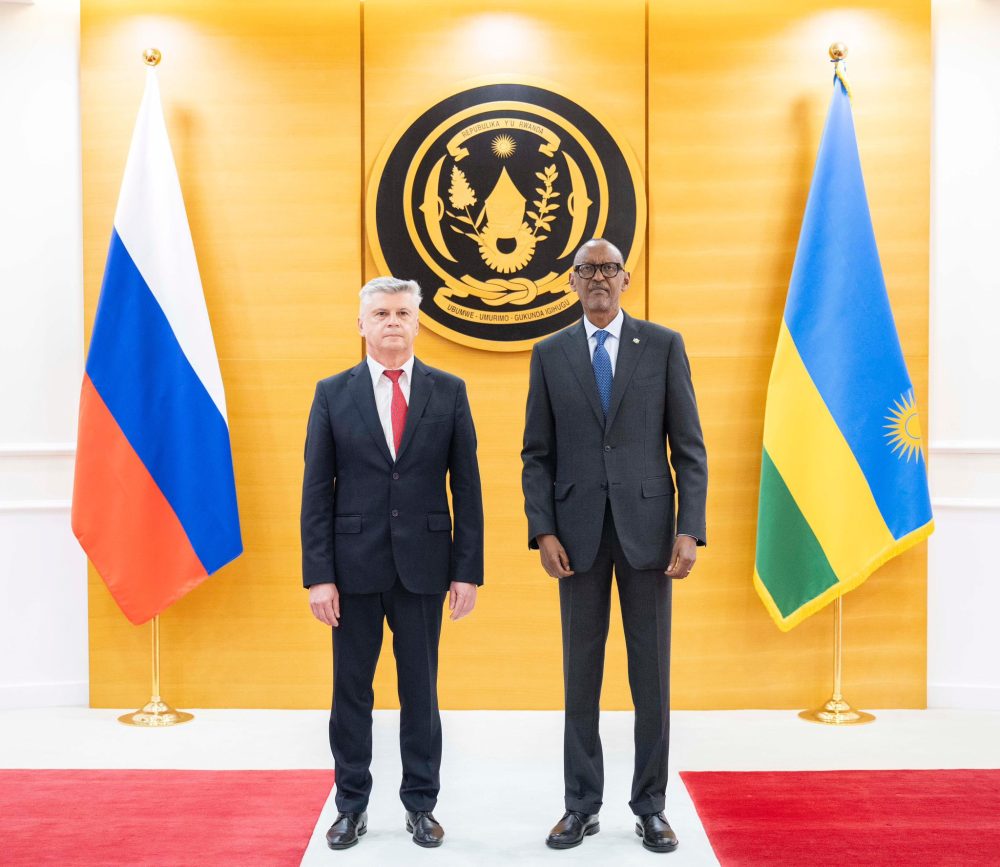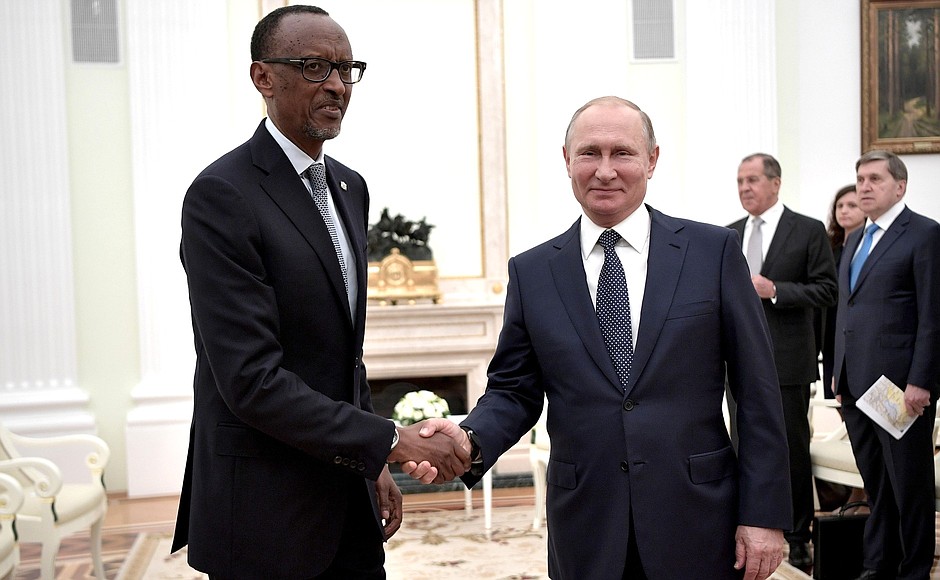Russia’s State Atomiс Energy Corporation ROSATOM is sending a delegation to Rwanda for in-depth discussions on potentially significant projects for bilateral cooperation, namely the construction of a nuclear science center and a small nuclear power plant in Rwanda, using Russian technology.
Alexander Polyakov Russian Ambassador recently posted to Kigali announced the upcoming visit by ROSATOM team.
“This is a complex, sensitive issue that requires careful consideration and multi-factor preparation. Therefore, I would caution against sensational expectations for now,” Alexander Polyakov told Russian newspaper, Sputnik.
The envoy said Russia, Rwanda aim to establish joint trade and amplify science commission and establish an intergovernmental commission on trade, economic, scientific, and technical cooperation.
He added that the draft agreement on this initiative is currently being reviewed by the Rwandan authorities.
“The issue of creating an Intergovernmental Russian-Rwandan Commission on Trade, Economic, Scientific and Technical Cooperation is on the agenda. The draft of the corresponding agreement was submitted this summer for consideration by partners,” said Polyakov.
The diplomat emphasized the potential for collaboration between Russia and Rwanda in IT and cybersecurity.
Meanwhile, it should be noted that in 2018, Rwanda and the Russian Federation signed an intergovernmental agreement for the establishment of a Centre for Nuclear Science and Technology.
The agreement lays ground for the establishment of Center for Nuclear Science and Technology (CNST) with the latest technology of a 10 MW pool- type reactor in Rwanda.
Going by the agreement, the center will feature six multi-purpose sections; Research Reactors and Lab Complex, Centre for Nuclear Medicine, Multipurpose Irradiation Center, and Radiobiology Laboratory and Greenhouse.
Other sections will include Education and Training Complex and Radiation Material Science Complex. The selection of the six laboratories of the centre follow consideration on ensuring impact on key sectors.
The sectors to be impacted by the development include medical research, energy, agriculture, security, industry and exploration, education, geology and the environment.

IT and cybersecurity
Polyakov acknowledges Rwanda’s leadership in digitization across Africa while highlighting Russia’s expertise in areas like electronic services and cybersecurity, making for a mutually beneficial partnership.
Ambassador Polyakov also recalled that it was in Rwanda that Kaspersky Lab, a Russian multinational cybersecurity and anti-virus provider, opened its second office in sub-Saharan Africa after South Africa, and last year opened its first Transparency Center on the continent.
During his visit to Russia, President Paul Kagame told President Putin that their countries were cooperating in various sectors, “education, training, defence cooperation as well, and other areas. And we are looking forward to having the private sector work in Rwanda, and look forward to hosting some of them from Russia to see the areas in which we could do investment and business.”



















